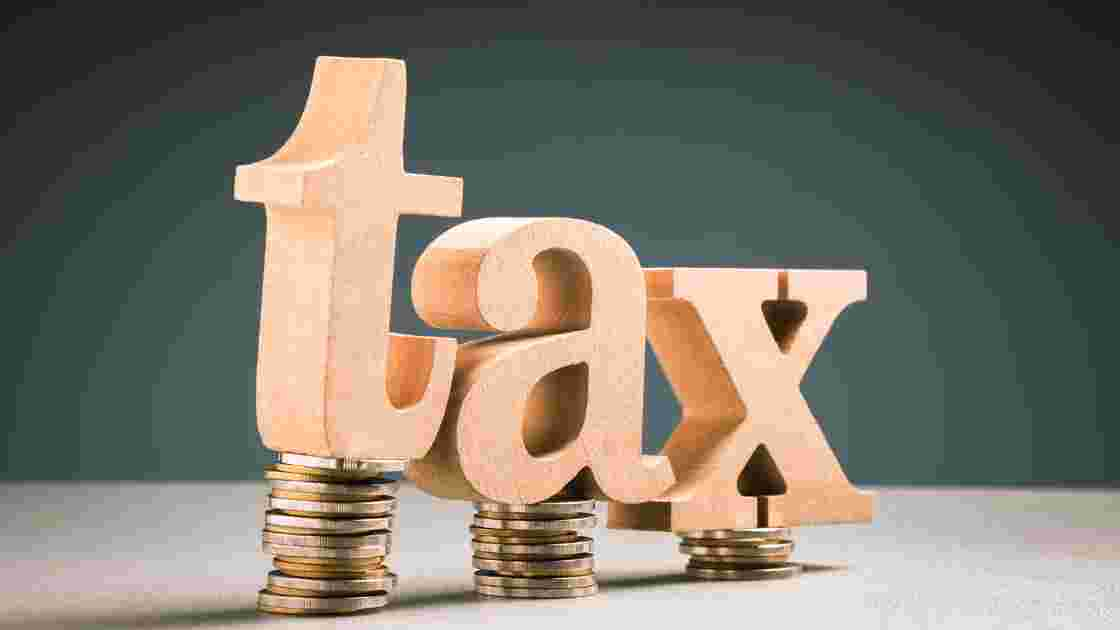When it comes to managing your finances, understanding how to save money on taxes is one of the smartest moves you can make. Taxes can eat up a significant portion of your income, but with the right knowledge and strategies, you can keep more of your hard-earned cash. Whether you’re filing as an individual, self-employed professional, or business owner, this guide will walk you through the top deductions and credits that can make a big difference in your tax bill.
Why It’s Important to Save Money on Taxes
Before we dive into the nitty-gritty, let’s talk about why saving money on taxes matters. Every dollar saved on taxes is a dollar you can invest, save for retirement, or use to enjoy life. The tax code may seem complicated, but it’s designed with plenty of incentives to help taxpayers lower their burden. By understanding these opportunities, you can take control of your finances and optimize your tax return.
Maximize Deductions to Save Money on Taxes
One of the easiest ways to save money on taxes is by maximizing your deductions. Deductions lower your taxable income, which means you owe less tax. Here are some common deductions you should consider:
1. Standard Deduction vs. Itemized Deductions
The standard deduction is a set amount you can subtract from your income, no questions asked. For the 2023 tax year, the standard deduction is:
- $13,850 for single filers
- $27,700 for married couples filing jointly
- $20,800 for heads of household
If your deductible expenses exceed these amounts, it might make sense to itemize your deductions instead. Itemized deductions include things like:
- Medical expenses (exceeding 7.5% of your adjusted gross income)
- State and local taxes (up to $10,000)
- Mortgage interest
- Charitable contributions
Weigh your options carefully to determine which approach will help you save money on taxes.
2. Home Office Deduction
If you work from home, you may qualify for the home office deduction. This applies to self-employed individuals or independent contractors who use a dedicated space exclusively for work. You can deduct a portion of your rent, utilities, internet, and even home repairs.
Pro Tip: Use the simplified method, which allows you to claim $5 per square foot of your home office (up to 300 square feet), to streamline your filing process.
3. Educational Expenses
Investing in your education can pay off in more ways than one. The Lifetime Learning Credit (up to $2,000 per year) or the American Opportunity Tax Credit (up to $2,500 for undergraduate education) can help offset the cost of tuition, books, and other qualifying expenses.
Even if you’re not a student, you can deduct up to $4,000 in tuition and fees for job-related courses. These deductions are especially valuable for anyone looking to save money on taxes while boosting their skills.
4. Medical and Dental Expenses
Healthcare can be costly, but certain medical and dental expenses are tax-deductible. You can deduct unreimbursed expenses that exceed 7.5% of your adjusted gross income. Eligible expenses include:
- Prescription medications
- Medical equipment
- Long-term care services
- Health insurance premiums (if self-employed)
Keep your receipts and records to ensure you maximize this deduction.
5. Charitable Contributions
Donations to qualifying charities can help you save money on taxes while supporting causes you care about. Whether you’re donating cash, goods, or even stocks, these contributions are deductible. Remember to keep records, such as receipts or acknowledgment letters, for all donations over $250.
Claim Tax Credits to Save Money on Taxes
Tax credits are even more powerful than deductions because they reduce your tax liability dollar-for-dollar. Let’s explore some of the most popular credits available to taxpayers.
1. Earned Income Tax Credit (EITC)
The Earned Income Tax Credit is designed to benefit low- to moderate-income workers. The amount of the credit depends on your income, filing status, and number of children. For 2023, the credit can be worth up to $7,430 for families with three or more children.
Even if you don’t owe any taxes, the EITC can provide a refund, making it a fantastic way to save money on taxes.
2. Child Tax Credit
Parents, rejoice! The Child Tax Credit allows you to claim up to $2,000 per qualifying child under the age of 17. A portion of this credit ($1,600 in 2023) is refundable, which means you can get money back even if you don’t owe taxes.
3. Saver’s Credit
Are you saving for retirement? The Saver’s Credit rewards low- and moderate-income taxpayers who contribute to a retirement account, such as a 401(k) or IRA. Depending on your income, you can claim a credit of 10%, 20%, or 50% of your contributions, up to $2,000 ($4,000 for married couples filing jointly).
4. Energy-Efficient Home Improvements
If you’ve made energy-efficient upgrades to your home, such as installing solar panels, energy-efficient windows, or a heat pump, you may qualify for the Residential Clean Energy Credit. This credit is worth 30% of the cost of qualifying improvements, helping you save money on taxes while reducing your carbon footprint.
Tax Strategies for the Self-Employed
Self-employed individuals have unique opportunities to save money on taxes. Since you’re both employer and employee, the tax code offers several benefits:
- Self-Employment Tax Deduction: You can deduct half of your self-employment tax (Social Security and Medicare) on your tax return.
- Health Insurance Deduction: Premiums for health, dental, and long-term care insurance are deductible if you’re self-employed.
- Business Expenses: Office supplies, travel, advertising, and professional services are all deductible, as long as they’re necessary for your business.
By tracking your expenses and taking advantage of these deductions, you can significantly lower your tax bill.
Retirement Savings: A Long-Term Way to Save Money on Taxes
Contributing to a retirement account isn’t just smart for your future—it’s also a great way to save money on taxes right now. Here’s how:
- 401(k) Contributions: Contributions to a traditional 401(k) are tax-deferred, meaning they lower your taxable income for the year.
- IRA Contributions: Contributions to a traditional IRA may be deductible, depending on your income and whether you have a workplace retirement plan.
- Health Savings Account (HSA): If you have a high-deductible health plan, contributing to an HSA provides a triple tax advantage: contributions are deductible, growth is tax-free, and withdrawals for qualified expenses are tax-free.
Maximizing these accounts can reduce your taxable income while helping you prepare for retirement.
Tips for Staying Organized and Prepared
To save money on taxes effectively, preparation is key. Follow these tips to stay organized and avoid last-minute stress:
- Keep Detailed Records: Save receipts, invoices, and bank statements to document your deductions and credits.
- Use Tax Software: Tax preparation software can help you identify opportunities to save money on taxes and ensure you don’t miss any deductions.
- Hire a Tax Professional: If your financial situation is complex, a tax professional can provide personalized advice and help you navigate the tax code.
- Review Changes to Tax Laws: Tax laws change frequently, so stay informed about updates that could impact your filing.
Avoid Common Tax Mistakes
Even the best plans to save money on taxes can be derailed by mistakes. Here are some pitfalls to watch out for:
- Failing to File on Time: Missing the deadline can result in penalties and interest, wiping out your savings.
- Not Reporting All Income: Ensure you report all sources of income to avoid trouble with the IRS.
- Overlooking Deductions or Credits: Take the time to review your return carefully to ensure you’re claiming everything you’re entitled to.
By avoiding these errors, you can make the most of your tax-saving strategies.
Final Thoughts on How to Save Money on Taxes
Saving money on taxes doesn’t have to be daunting. By understanding deductions, credits, and strategies available to you, you can take control of your tax situation and keep more of your income. Whether it’s maximizing retirement contributions, claiming credits for education and energy efficiency, or staying organized throughout the year, every step you take brings you closer to a healthier financial future.
Remember, the tax code is full of opportunities to reduce your tax liability—you just need to know where to look. By following the tips and strategies in this guide, you’re well on your way to mastering how to save money on taxes and securing a brighter financial future.
If you found this guide helpful and want to dive even deeper into the topic, be sure to check out this detailed article: 10 Essential Tax Tips to Maximize Your Refund in 2025
Take Advantage of the Fiverr Services Below!
Need help navigating tax season or tax tips from experts? Fiverr freelances offers a range of professional services to make your life easier. From expert tax preparation to financial consulting, you’ll find affordable, reliable assistance tailored to your needs.







2 responses to “How to Save Money on Taxes: Top Deductions and Credits You Need to Know”
Excellent resource! Maximizing tax deductions and credits can make a huge impact on one’s finances. Thanks for sharing these valuable tips and strategies to help reduce tax liability and keep more of our hard-earned money!
Brilliant guide! Understanding how to save money on taxes is a game-changer. By leveraging top deductions and credits, individuals and businesses can keep more of their hard-earned income. Thanks for sharing actionable tips to help readers optimize their tax returns and achieve financial freedom!